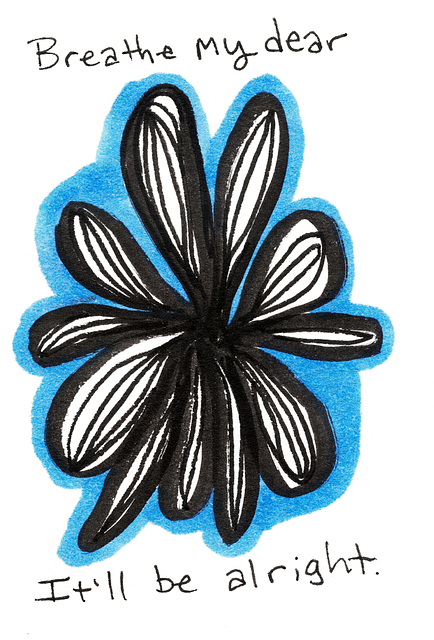Substance abuse in Lone Tree is driven by mental health, environmental, and genetic factors, with individuals often using drugs as a coping mechanism for stress, anxiety, or trauma. Early intervention and prevention are key to combating youth substance abuse through education and support networks. Lone Tree Cancer Issues Therapy offers a unique approach combining Cognitive Behavioral Therapy (CBT) with holistic practices like mindfulness and yoga to address root causes and promote mental health management. Supportive measures including emotional intelligence development, mental health awareness, and cultural competency training enhance long-term recovery from substance abuse, focusing on individual needs and fostering resilience.
In today’s digital era, addressing substance abuse is more crucial than ever. Understanding Lone Tree cancer issues, such as alcohol and drug misuse, requires a multifaceted approach. This article explores comprehensive risk reduction strategies for substance abuse, encompassing early intervention and prevention tactics, evidence-based therapy options like Lone Tree cancer therapy, and supportive measures to facilitate long-term recovery. By delving into these key areas, we aim to equip readers with tools to navigate and overcome the challenges associated with substance abuse.
- Understanding Substance Abuse and Its Risks
- Early Intervention and Prevention Strategies
- Therapy Options for Effective Treatment
- Supportive Measures for Long-Term Recovery
Understanding Substance Abuse and Its Risks

Substance abuse is a complex issue that involves the harmful use of substances like drugs and alcohol, leading to adverse effects on an individual’s health, relationships, and overall well-being. It’s crucial to understand that substance abuse isn’t merely a personal choice but a chronic condition that can stem from various underlying factors such as mental health issues, environmental influences, or genetic predisposition. In Lone Tree, cancer issues have been linked to high rates of substance abuse, highlighting the need for comprehensive therapy and support systems.
Identifying risk factors is an essential step in prevention. Many individuals turn to substances as a means of coping with stress, anxiety, or trauma, which can worsen their situation. Fostering inner strength development and implementing self-care practices can be game-changers in mitigating these risks. Confidence-boosting strategies can play a pivotal role here, encouraging individuals to seek healthier alternatives for managing their emotions and challenges without relying on substances. By addressing the root causes and promoting holistic well-being, Lone Tree’s cancer community can work towards reducing substance abuse rates and fostering better health outcomes.
Early Intervention and Prevention Strategies

Early Intervention and Prevention are key strategies in tackling substance abuse issues. By implementing tailored programs in schools and communities, we can identify at-risk individuals before their situation escalates. This proactive approach focuses on educating youth about the potential dangers of substance use, fostering confidence boosting alternatives, and providing support systems to navigate through stressful situations that might lead to anxiety relief.
The goal is to empower young people with the knowledge and tools to make informed decisions regarding their well-being. Encouraging the development of a self-care routine can significantly contribute to better mental health, offering a proactive measure against substance abuse. Lone Tree Cancer Issues Therapy, for instance, has shown promising results in combining traditional therapy with holistic practices to address underlying issues that may trigger substance misuse.
Therapy Options for Effective Treatment

Lone Tree Cancer Issues Therapy offers a range of therapeutic options for individuals struggling with substance abuse. Cognitive Behavioral Therapy (CBT) is a commonly employed approach, focusing on identifying and changing negative thought patterns that contribute to drug or alcohol dependence. This evidence-based method has proven successful in treating various addictions by empowering patients to develop healthier coping strategies.
Additionally, Lone Tree Cancer Issues Therapy integrates Stress Management techniques, such as mindfulness meditation and yoga, to address the underlying emotional triggers often associated with substance abuse. By fostering Emotional Intelligence, therapy sessions help individuals understand and regulate their emotions, reducing the likelihood of resorting to substances as a coping mechanism. Furthermore, Mental Illness Stigma Reduction Efforts within the therapy setting create a supportive environment, encouraging open dialogue about mental health challenges, which is essential for long-term recovery.
Supportive Measures for Long-Term Recovery

Supportive measures play a pivotal role in ensuring long-term recovery from substance abuse. These initiatives extend beyond traditional therapy and include various strategies aimed at fostering stability, resilience, and overall well-being. One such crucial aspect is emotional intelligence, which equips individuals with the skills to recognize and manage their emotions effectively, thereby reducing triggers for relapse.
Incorporating mental health awareness and cultural competency training for both the individual in recovery and their support network is another effective measure. Healthcare providers play a vital role here by offering guidance tailored to each person’s unique cultural background and mental health needs. This personalized approach not only enhances the effectiveness of treatment but also creates a supportive environment that understands the complexities of substance abuse, addressing potential Lone Tree cancer issues related to therapy and recovery seamlessly.
Substance abuse is a complex issue, but with comprehensive strategies, individuals can reduce risks and achieve long-term recovery. Early intervention and prevention are key, focusing on education and support systems to deter potential abusers. Professional therapy options, such as Lone Tree Cancer Issues Therapy, offer effective treatments tailored to individual needs. Additionally, supportive measures like peer groups and aftercare programs play a vital role in sustaining recovery. By combining these risk reduction strategies, individuals can navigate the path to healing and maintain a healthier, safer future.














